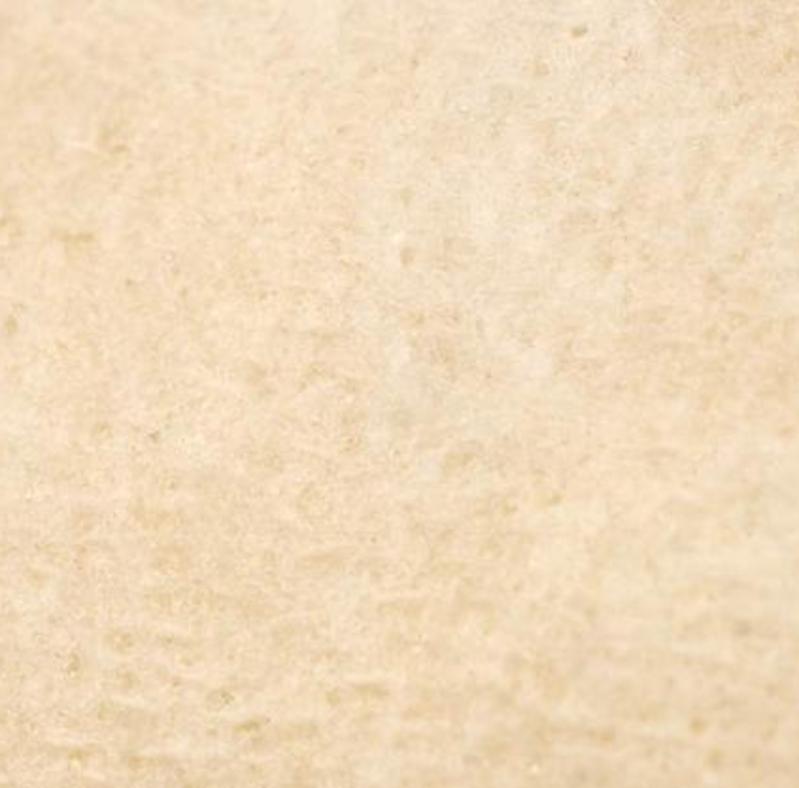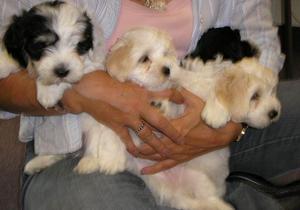Frequently Asked Questions
I have allergies. I hear that havanese are hypoallergenic.
There is no such thing as a hypoallergenic dog, although some breeders may try and tell you so. Havanese are known to be one of the best breeds for allergy sufferers. The best thing to do is spend some time around havanese dogs and decide for yourself.
Do havanese shed?
Havanese do not shed, but they do lose hair, just as humans do. Regular brushing helps to maintain a healthy coat. At times the hair loss may be greater, for example when outgrowing a puppy coat into an adult coat.
What is socialization and why is it important?
Havanese were bred as companion dogs. Socialization is the process of introducing puppies to all sorts of circumstances to ensure that they grow up well rounded. Socialization starts with the breeder and continues with the owner. It is important to buy a puppy from a breeder that exposes puppies to people, children, situations, etc. I believe home raised puppies are usually better socialized than kenneled puppies. A puppy that isn't socialized may exhibit behaviour problems later on.
Are havanese good with kids?
If they have been well socialized, absolutely YES.
How much activity do havanese require?
Havanese enjoy exercise and activity, but as dogs go, they are on the low end of requirements. Havanese should have plenty of play time and at least a short walk each day.
I live in an apartment, can a havanese adjust to that lifestyle?
There are many happy apartment dwelling havanese.
Is the havanese coat difficult to maintain?
To keep a havanese in a full coat requires regular brushing. As a young puppy, brushing a few times a week will suffice. Around 6 months of age the adult coat begins to come in and the dog will require a daily brushing until the coat is mature. Many pet owners choose to have their havanese clipped to ease coat maintenance.
If I am getting a pet, why must I sign a spay/neuter contract?
This ensures that unwanted dogs are not produced and it helps to keep dogs out of puppy mills. Breeding needs to be handled by people who understand the dogs, genetics, health problems, and are willing to commit to bettering the breed.
Are havanese difficult to house train?
Havanese are small dogs of the Bichon family. If your family dog growing up was a lab or a shepherd, you may have found house training occurred very easily. This isn't always the case for many small dogs including Bichons. Havanese do take work and consistency to house train. It may take months before your dog is reliable in the house.
Are males or females better pets?
Both males and females make wonderful pets. Both are extremely affectionate and make great lap dogs.
When do puppies go home?
Puppies go home after 8 weeks of age.
Do havanese bark a lot?
It depends. They do bark when they want something, but can be trained not to bark. My havanese are quiet all day while I'm at work, but want my attention for awhile after I get home They are also good watch dogs and will bark at doorbells, knocks, or other noises they deem as intrusive.
Do havanese require a lot of attention?
Yes, they were bred for companionship, and although they do fine on their own for periods of time, they do live for their owner. They also love the company of other dogs. A busy person may find two havanese fit better into his/her life than one.
Is owning a havanese contagious?
Yes, once you get to know these joyous little dogs with big personalities and adorable faces, it is hard to resist the temptation to own one. Havanese are long lived, so it isn't a commitment to take lightly, but one that can bring great happiness into your life

Useful Links
Sedosos Havanese
(905)745-7832
Caledonia, Ontario (near Hamilton)
terribergan@gmail.com
Check out our Facebook page
CONTACT US

